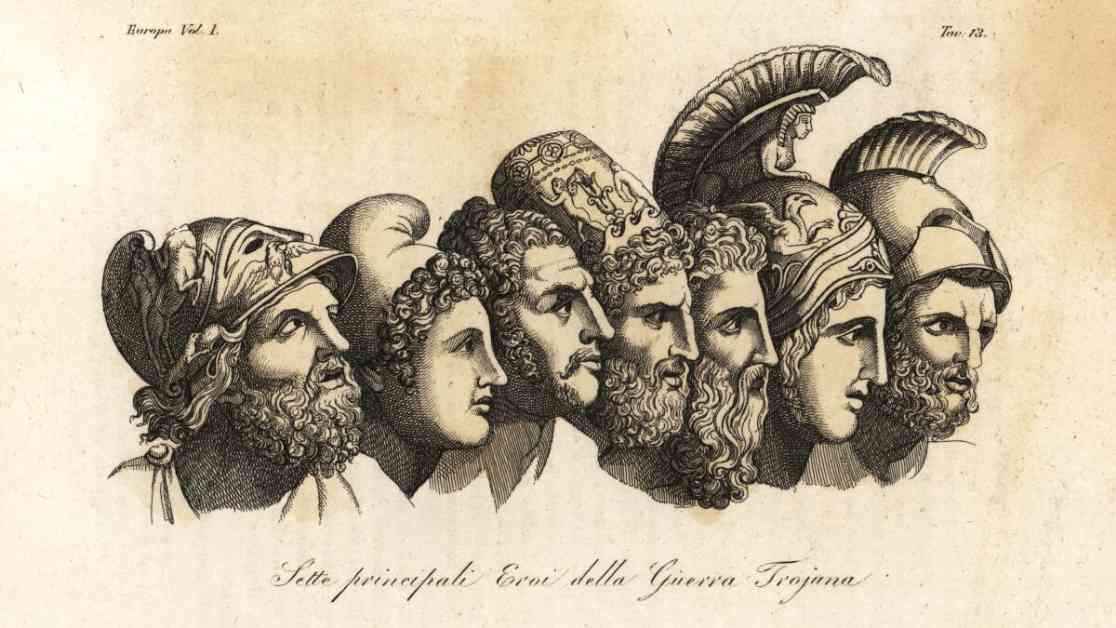In my personal literary journey, few works have resonated with me more deeply than Homer’s “Iliad.” Each time I return to its pages, I find myself uncovering new layers of insight into the complexities of human nature. This timeless epic has a way of shifting and evolving alongside my own life experiences, much like a mountain that reveals new perspectives with each glance.
Recently, as I delved back into the “Iliad” in January, shortly after a significant change in leadership in Washington, I was struck by the parallels between the characters in this ancient tale and the figures in contemporary American politics. This realization prompted me to ponder a thought-provoking question: If Donald Trump were a character in the “Iliad,” who would he be?
To provide some context, the “Iliad” centers around the prolonged siege of Troy by the Greeks following the abduction of Helen by a Trojan prince. The narrative unfolds with a series of conflicts and power struggles among the Greek leaders, most notably between King Agamemnon and the formidable warrior Achilles. Agamemnon’s actions, driven by wounded pride and a thirst for vengeance, set off a chain of events that culminate in tragic consequences for all involved.
As I contemplated the Trumpian character in this ancient tale, I couldn’t help but draw parallels to two key figures: Menelaus and Achilles. Menelaus, the betrayed husband of Helen and a catalyst for the war, initially seems like a fitting comparison to Trump. However, Menelaus ultimately reconciles with Helen, a resolution that starkly contrasts with Trump’s known behavior.
On the other hand, Achilles emerges as a more compelling candidate for the Trump archetype in the “Iliad.” Described as petulant, vengeful, and lacking in empathy, Achilles embodies many characteristics that align with popular perceptions of Trump’s personality. His selfish pursuit of personal glory at the expense of his comrades and his inability to let go of grudges mirror some of Trump’s own actions and attitudes.
Despite Achilles’ eventual growth and self-awareness in the epic, Trump’s refusal to learn from his mistakes and evolve suggests a closer resemblance to King Agamemnon. Agamemnon’s ruthless and self-serving leadership style, marked by arrogance and a lack of accountability, bears a striking resemblance to Trump’s own approach to governance.
While other figures in the “Iliad,” such as Diomedes and Thersites, offer additional parallels to certain aspects of Trump’s persona, it is Agamemnon’s unchanging nature and destructive leadership that most closely mirror the former president’s behavior. Agamemnon’s disregard for his people, his penchant for blaming others, and his insatiable thirst for power all echo familiar themes from Trump’s time in office.
In the grand tapestry of the “Iliad,” Trump’s character finds a reflection in the flawed and hubristic figures of ancient Greece. As we reflect on the lessons of this timeless epic and its relevance to modern politics, we are reminded of the enduring impact of leadership and the consequences of unchecked ambition.
In the words of author Jesse Browner, who aptly captures the essence of these parallels, Agamemnon stands as a stark reminder of a leader who learns nothing and forgets nothing—a cautionary tale for those who wield power without humility or wisdom. As we navigate the complexities of leadership and governance, let us heed the lessons of the past to shape a more compassionate and just future for all.














